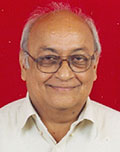Tinder box
16 Feb 2008
 In 1956, the late Solomon Bandaranaike faced an election in Sri Lanka that he desperately wanted to win. So he jettisoned the country's long established three-language policy (Sinhala, Tamil and English) and promised to make Sinhala the lone, official language of the country and won a landslide victory.
In 1956, the late Solomon Bandaranaike faced an election in Sri Lanka that he desperately wanted to win. So he jettisoned the country's long established three-language policy (Sinhala, Tamil and English) and promised to make Sinhala the lone, official language of the country and won a landslide victory.
It was an act of pure political opportunism, for Bandaranaike was anything but a Sinhala chauvinist. But it sowed the seeds of a Tamil rebellion that has now lasted for 25 years, claimed tens of thousands of lives, and all but destroyed Sri Lanka's economic and political future.
Today a similar act of pure, callous political opportunism threatens the future of India.
Raj Thackeray has not suddenly discovered that there are large numbers of north Indians in Mumbai. They were there long before he was born. A study of Mumbai's labour force by Vijay and Heather Joshi in the early '60s had shown that workers from UP formed its second largest component even then.
Raj Thackeray's only purpose in setting his goons upon north Indians in Mumbai is to wrest back control of the Shiv Sena from his cousin Udhav Thackeray, to whom it was bequeathed by his father Bal Thackeray in 2004. What makes him specially dangerous is that his is more than an act of opportunism, it is also one of filial revenge.
His ploy is already proving abortive, but in the worst possible way. As anyone could have predicted he would do, Udhav has responded by starting a north-Indian hate campaign of his own. As a result the goons of the Shiv Sena are now belabouring Biharis and Uttar Pradeshis with as much gusto as those of the Maharashtra Nav Nirman Samiti.
The cynical antics of the two cousins have already been condemned by responsible politicians, and leading members of the public and intelligentsia in Maharashtra. On Monday, L K Advani added his powerful voice to the chorus. But so far most of the critics have focussed only on the damage that the Thackerays' opportunism could do to Maharashtra.
Many have drawn parallels between the son's campaign against north Indians, and the father's attack on south Indians 40 years ago, and drawn comfort from the fact that the latter had fizzled out after a few months of violence and conferred no significant benefit on the Shiv Sena.
But 2008 is not 1968. India has changed dramatically in these 40 years. Thus what had remained a localised assault 40 years ago could easily become the spark that sets the entire country aflame today. India had only a handful of migrant workers in the '60s. Most of the so-called outsiders had arrived in metros like Bombay and Calcutta in trickles over the course of the British Raj.
The Tamils against whom Bal Thackeray launched his campaign had been in Maharashtra for more than two generations. Today there are up to a hundred million migrant workers in the country. There are Andhras working in Maharashtra, Tamil Nadu, Karnataka and Orissa; Oriyas working in Gujarat, Rajasthanis working as construction workers all over northern India, and Uttar Pradeshis working as farm labourers in Punjab and Haryana. There are Biharis working in Kashmir and Kashmiris working in Himachal Pradesh.
The most numerous of all are the Biharis. Twenty-five years of caste wars followed by 15 years of Laloo rule in which economic development became a bad word, has forced an entire generation of Biharis to look for jobs outside their state. As a result 28 per cent of the adult male population of the state now works in projects and enterprises that stretch from Kashmir to Kanyakumari, from Goa to Arunachal Pradesh.
It is one of the miracles of Indian civilisation that all of them have been accepted peacefully by the host populations. But the opportunity they present to unscrupulous politicians to exploit for ephemeral political gain is too great to resist forever. And with the economic gap between the so-called 'progressive' and 'backward' states growing ever larger, this resistance has been eroding rapidly. In the past two or three years small parochial parties have begun to make noises about imposing disabilities upon outsiders with increasing frequency. The Thackerays may give them just the pretext that they have been looking for.
The other great change is in the reach of the media. Forty years ago an anti Tamil riot in Mumbai would be reported only in the print media. The reporting would be circumscribed by government 'D' notices and filtered by vigilant editors for inflammatory content. Most people would therefore only hear about it second or third hand, over a period of days. Today the news is flashed in gory detail by two dozen TV channels in a dozen languages, within a matter of minutes. People get to see what is happening and do so every hour for the entire day. What could happen was brutally demonstrated by the anti-Sikh riots in north India after Mrs. Indira Gandhi's assassination and the carnage in Gujarat after Godhra.
Lopsided development, and the mobilising power of the audio-visual media have therefore turned not just Maharashtra but the whole of India into a tinderbox. Mr. Advani deserves credit for having recognised this. But how does one explain the silence from the Congress camp? Are Mrs Sonia Gandhi and Dr Manmohan Singh not staunch defenders of secularism? And isn't racial bigotry a blood brother of religious bigotry?
Two decades ago Mrs. Indira Gandhi would have boarded Air Force One for Mumbai, days ago. But the Congress seems to have become a stranger to that kind of leadership today.



















